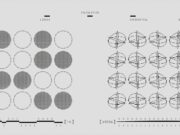In today’s fast-paced world, time is often referred to as one of our most valuable resources. However, it is also one of the scarce resources we have. Measuring time effectively is essential to maximize productivity and maintain a balance between personal and professional life. So, what measures the scarce resource of time? Let’s dive in and explore the concept of time as a finite resource and how it affects everything from decision-making to productivity.
Understanding Time as a Finite Resource
Time, as a limited resource, is a concept we often hear in both casual conversations and professional settings. The basic idea is simple: there is only so much time available to each of us. No matter how hard we try, we can’t create more time in a day. We are all working within the same 24-hour cycle.
The economics of time scarcity explains that as time becomes more valuable, it drives decisions on how we allocate our efforts. Just like any other resource, when something is scarce, it demands careful attention and management.
Why Time is a Limited Resource
Time is different from many other resources because we can’t store it. Once a moment passes, it’s gone forever. The scarcity of time is what makes it such an important factor in decision-making and efficiency. While money or materials can be replenished, time can never be restored. This is why understanding time as a finite resource is key to making better choices.
The Economics of Time Scarcity
In economic terms, scarcity refers to the limited availability of a resource in comparison to the demand for it. Time scarcity impacts not only individuals but also organizations and economies. People often find themselves struggling to balance work, family, personal growth, and rest, making it even harder to allocate time efficiently.
The concept of time scarcity can also be linked to the idea of opportunity cost. When we spend time on one activity, we are essentially sacrificing the chance to engage in something else. Recognizing this helps us make better decisions about where to invest our time.
How to Measure Time Efficiently
Measuring time is about more than simply looking at the clock. It involves understanding how time is spent and finding ways to optimize it. There are several tools and techniques designed to help with time management and time optimization.
Tools for Measuring Time Management
There are a variety of tools available today to help measure how time is spent. From apps to planners, these tools assist in tracking time usage and making adjustments as needed. By tracking where your time goes, you can identify areas where improvements can be made. Time-tracking tools allow you to assess whether your time allocation aligns with your priorities.
Here is a table showcasing some popular tools for measuring time management:
| Tool | Purpose | Example |
| Time Tracking Apps | Monitor how time is spent on tasks | Toggl, Clockify |
| Time Blocking Calendars | Schedule time for specific tasks | Google Calendar, Notion |
| Task Management Apps | Break tasks into smaller, actionable steps | Todoist, Asana |
These tools can help you stay on track and make the most out of your scarce time.
Key Metrics for Time Optimization
Once you start measuring your time, it’s essential to set metrics that can guide you toward better time optimization. Some key metrics to track include:
- Productivity Ratio: How much of your time is spent on productive tasks versus distractions.
- Time Allocation: Understanding how you’re spending each segment of your day (work, leisure, chores).
- Efficiency: The amount of output you generate relative to time spent on a task.
By focusing on these metrics, you can find areas where you may be wasting scarce time and take steps to reduce inefficiencies.
The Value of Time in Daily Life
In our daily routines, time plays a crucial role in determining success and well-being. Whether you’re balancing work responsibilities or personal interests, how you manage your time can greatly influence your productivity.
How Time Impacts Productivity
If time is not managed effectively, it can lead to unnecessary stress and burnout. When you feel like there’s never enough time to accomplish everything, productivity suffers. This is where proper time management comes into play.
When you measure and optimize time, you can ensure that you’re focusing on the highest-priority tasks. Instead of spending hours on unimportant activities, you can allocate your time to those that have the most significant impact. By being strategic with your time, you can accomplish more without feeling overwhelmed.
Managing Time for Better Decision Making
The scarcity of time also plays a role in decision-making. When time is limited, the decisions we make need to be efficient and purposeful. For example, rather than spending too much time on low-impact tasks, we prioritize those that help us achieve our goals. This mindset allows for better decision-making and time optimization in both professional and personal spheres.
Strategies to Combat Time Scarcity
To make the most of our scarce time, we need to develop strategies to combat its limitations. Managing time effectively isn’t about squeezing every second out of the day but rather about being mindful of where your time is spent.
Time Management Tips for Busy Lives
Here are some effective strategies to combat the scarcity of time and make the most of your day:
- Prioritize Tasks: Identify your most important tasks and complete them first.
- Eliminate Distractions: Minimize interruptions to focus on what matters most.
- Take Breaks: Schedule time for rest to avoid burnout.
- Delegate: Don’t try to do everything yourself; delegate when possible.
These simple steps can help reduce the overwhelming feeling of time scarcity and lead to a more productive lifestyle.
How to Optimize Your Time Resource
Optimizing your time resource requires a shift in how you view your day. Instead of seeing time as something to be filled up, think of it as something to be invested. Use techniques like time blocking and batching tasks to make the most out of every hour.
By taking control of your scarce resource, you can ensure that your actions align with your long-term goals, reducing wasted time and increasing efficiency.
Time Scarcity and Its Effect on Decision Making
When time is limited, the choices we make are even more crucial. Time scarcity forces us to think critically about what we want to prioritize in life.
Why Time is a Valuable Resource in Life Choices
We often make decisions based on the limited amount of time available. Whether choosing between work and leisure or between different projects, the scarcity of time makes each decision more important. The better we are at measuring and optimizing our time, the more we can make choices that align with our values and goals.
The Impact of Time Scarcity on Success
Success is often tied to the ability to make the most of limited resources, and time is no exception. People who manage their time well are typically more successful in achieving their personal and professional goals. By reducing time wastage, you increase your chances of success in the long run.
Frequently Asked Questions
- Why is time considered a scarce resource?
Time is considered scarce because it is finite. Once a moment passes, it can never be regained, making it one of the most valuable and limited resources we have.
- How can I improve my time management skills?
Improving time management skills involves using tools like calendars, time tracking apps, and prioritizing tasks. It’s also essential to eliminate distractions and focus on high-priority activities.
- What are the best tools to measure time?
Popular tools for measuring time include time tracking apps like Toggl and Clockify, task management tools like Asana, and time-blocking methods using calendars such as Google Calendar.
- How does time scarcity affect productivity?
Time scarcity can lead to stress and a decrease in productivity if not managed properly. By measuring time effectively and prioritizing tasks, you can boost productivity and reduce feelings of overwhelm.























